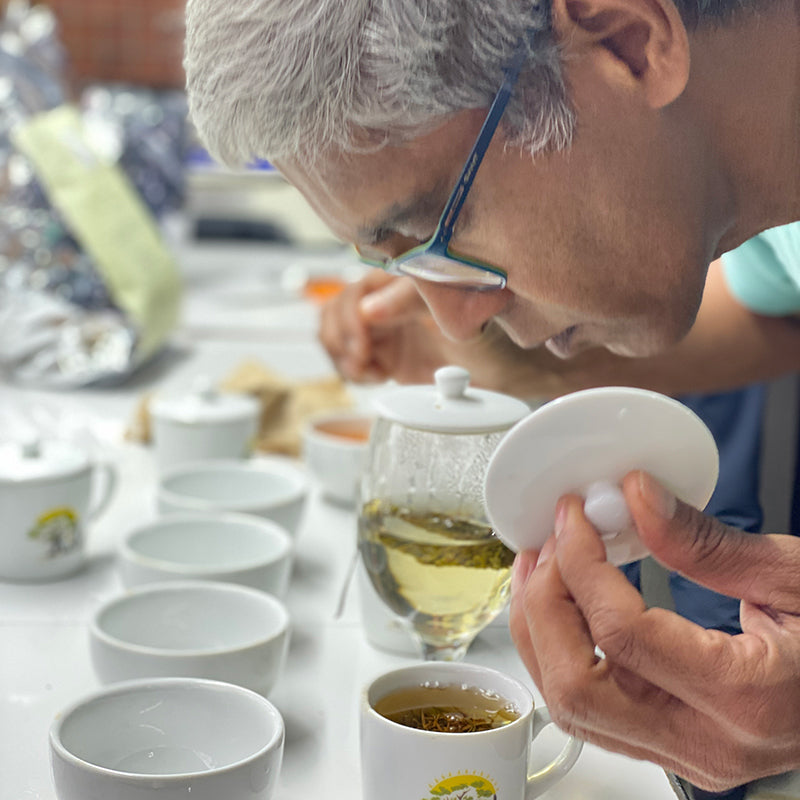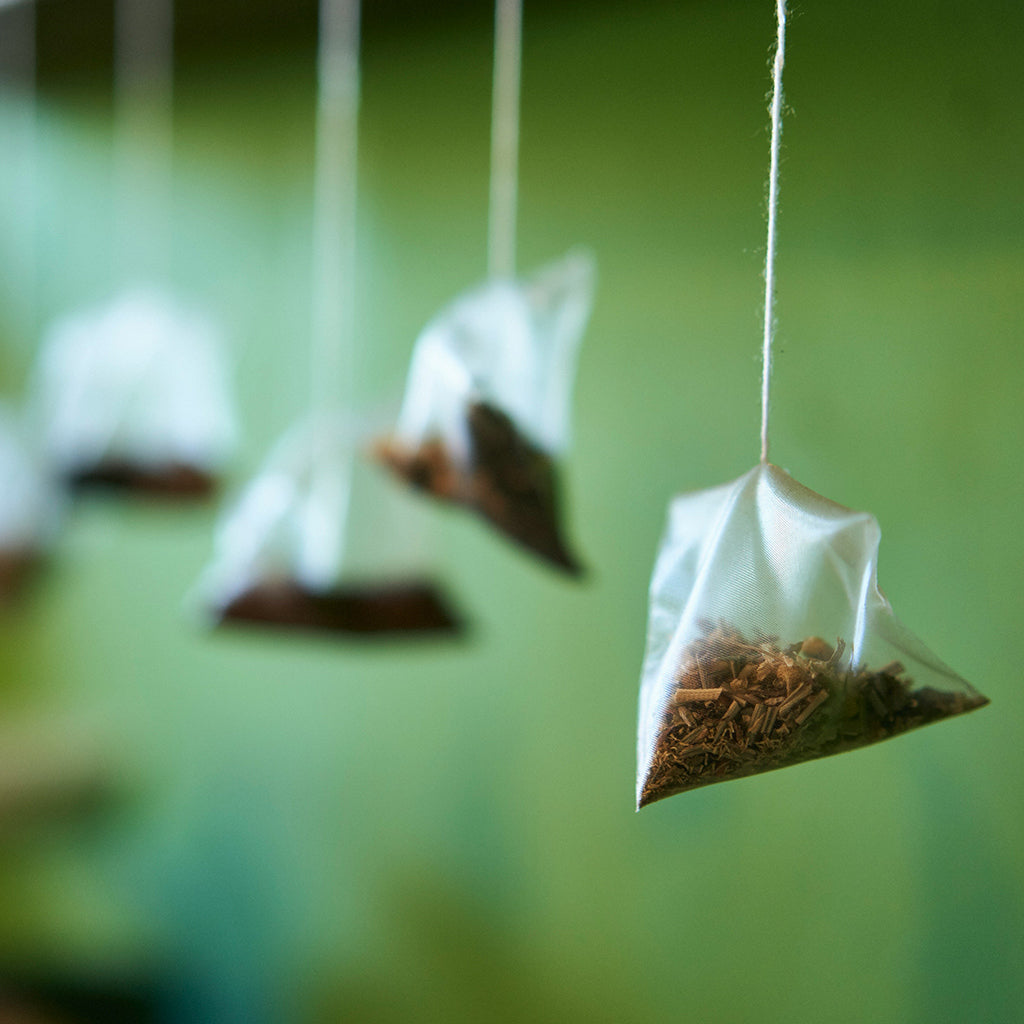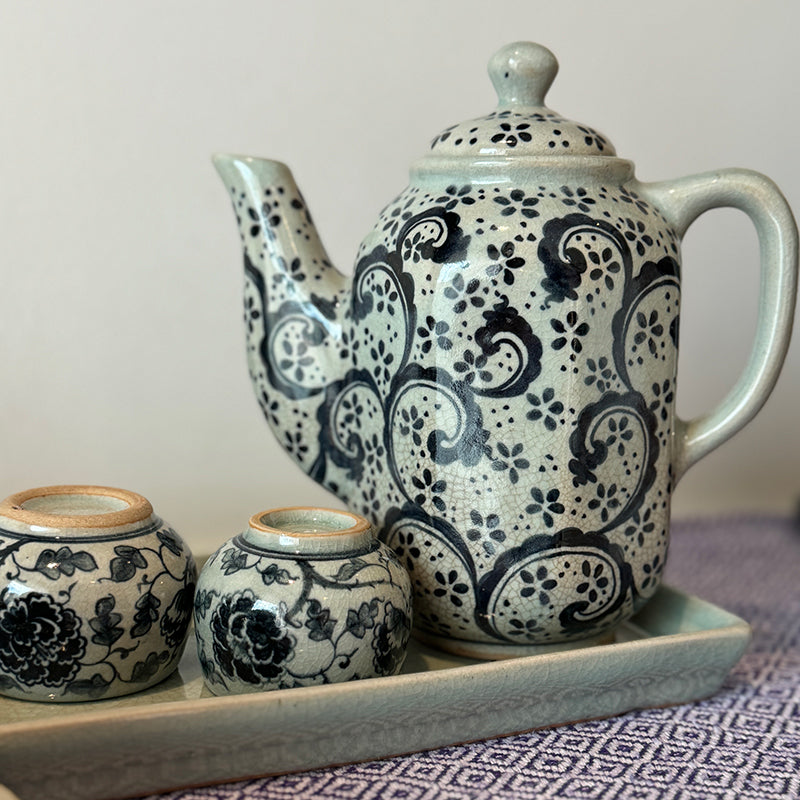Positive Impact - Organic Single Origin Tea
Located to the south east edge of the Sri Lankan highlands, the Uva tea region has produced tea for generations. Whilst rich in natural beauty, it is an area of poor resources and underdevelopment. The people of the region have some of the lowest income levels and education in Sri Lanka, whilst investment in infrastructure and services is virtually non-existent. One Tea Estate is trying to change all that. Amba is doing something different. They are doing something amazing.
Taste the Amba difference
We should start with the tea itself. Teas from the region are famous for their subtle ‘wintergreen’ undertones. This is caused by a natural silicate in the soil, coupled with the dry winds that blow in from the East. Sadly, in the rush to grow and cultivate, most of the teas form Uva have long lost this distinctive flavour, a result of planting conal bushes and fertilizer use. Amba has decided to strip away the accelerants of modernisation, because their focus is on taking time, not rushing it.
They are organic and plant seedling tea using seeds from the original 100 year old bushes. There is no corruption to the taste and those distinctive, historical Uva flavours can once again be experienced. How good is it? When a former Tea Taster from London’s Fortnum & Mason first tried Amba’s TGOP he almost cried. The Tea reminded him of the Uva tea from when he first worked in the region more than 30 years previous.
Such is the delicate and appealing flavour of Amba Estate that the tea is served and sold at some of the world’s most prestigious stores and restaurants. The aforementioned Fortnum & Mason are joined by Claridges in London, Harney’s and Meadowood in the United States, Noma in Denmark, Bills in Tokyo, Betjeman & Barton in France, and many more.
True tea craftmanship
Not an accident of flavour but a result of true tea craftsmanship. Amba was the first tea estate to begin hand rolling black and green teas, similar to the style used in China and Japan.
In China, where the story of tea really begins, small batch tea was commonplace and techniques for hand rolling were passed from one generation to the next. When tea was introduced to Sri Lanka, it was a commercial crop for quick cultivation and fast profit. Amba, against the advice of others who said it could not be done, decided against the factory approach. They opted for the traditional, careful and time- consuming approach of yesteryear.
It worked, introducing flavours enhanced by terroir and technique, providing an exquisite taste favoured by afficeniados.
Sourcing locally - organic in nature
The dedication to old techniques extends to the lack of modern fertilisers and artificial chemicals in the growing process. Whilst the Amba Estate farm is certified organic, you will notice the product is not labelled as such. This is because part of the Amba Estate mission is to source as much as they can from local farmers, maximising the economic impact of their tea as much as possible. The lemongrass, spices and other ingredients from local farmers is de facto organic but these farms are not certified organic as the cost is prohibitive for the small smallholding farmer.
The Amba Estate farm provides 90% of the flavourings in their teas. Cinnamon, cloves, ginger, lemongrass, fennel, coriander, pepper and chili; as well as the butterfly pea flowers in our blue tea all come from the farm. It’s enough to keep 40 full-time staff busy, whilst also requiring extra resources for seasonal work. What is not produced on the farm is sourced locally from families in the Valley. So much so, it’s estimated some 100 households now earn their primary income from Amba.
Nourishment of Future Generations
Founded in 2006 with the primary purpose of maximising local employment and incomes, the tea produced has become a vehicle for enriching the region and showcasing how working with nature can produce a sustainable outcome for the nourishment of future generations.
The work doesn’t stop there. Those delicate flavours you taste from a freshly brewed cup of Amba tea have an inestimable strength of goodness. It supports English teaching and exchanges, medical visits (especially important in a Valley with little access to medicine), donations of computers, toys and clothing. Nothing should ever be reduced to finances and numbers. But sometimes it's ok if they fall on the side of the good. As is the case here, with local wages increasing by over 800% since Amba began, plus a bonus of 10% of the revenue which is split amongst the workers.
Regenerative Environmental Model
The same attention which is paid to the process of tea making and care for the workers' livelihoods, is also shown towards the environment. Doing everything they can to restore natural habitats and ecosystems, they are acutely aware that what we put in the soil comes back to us. In many parts of Sri Lanka, the excessive use of agro-chemicals has led to heightened levels of kidney and liver disease in locals.
The essence of a regenerative model, you can see how Amba has drawn a line between how we treat the land, how we treat ourselves and our health.
A line that includes not just the earth and our physical health, but also mental health. Particularly keen on increasing mental well-being, Amba has partnered with the Mulleriyawa Halfway Home for women recovering from mental illness. The ladies from the Home even make some of the packaging for AMBA's tea products.
Infused with Inspiration - A Tea Ritual
Back to the tea. Being able to taste the past and the return of those distinct Uva flavours ought to be enough to make a cup Amba tea exquisitely enjoyable. But it goes beyond that. And whilst ‘terroir’ may be used to describe the environmental factors that manifest themselves in the taste, it does not go far enough. What you taste in a cup of Amba Tea is something special. It’s infused with the inspiration of an approach to life, people and the environment that must be savoured. When you brew a cup, rest easy and smile. We think your drink contains dreams. Beautiful, happy dreams. Because there really is something powerful in those delicate flavours.




